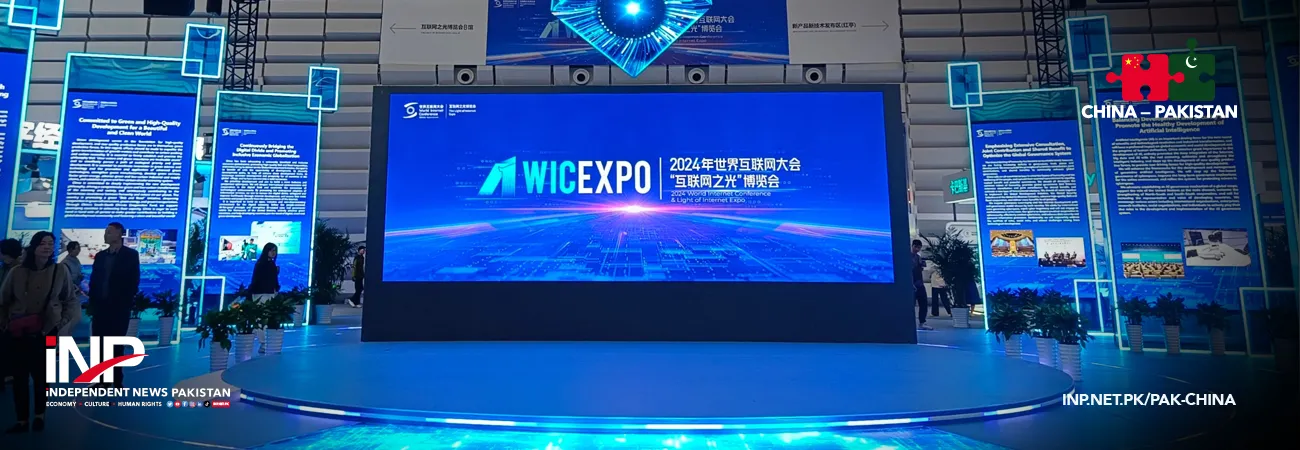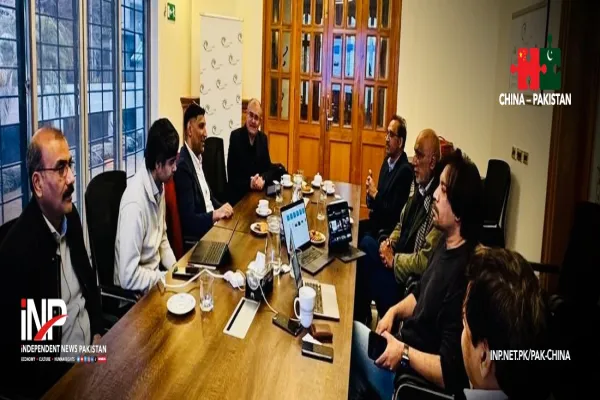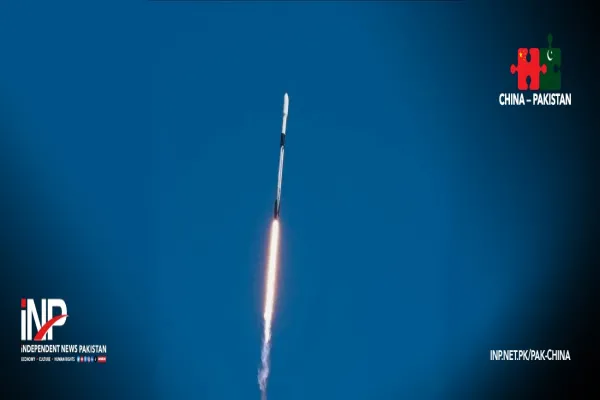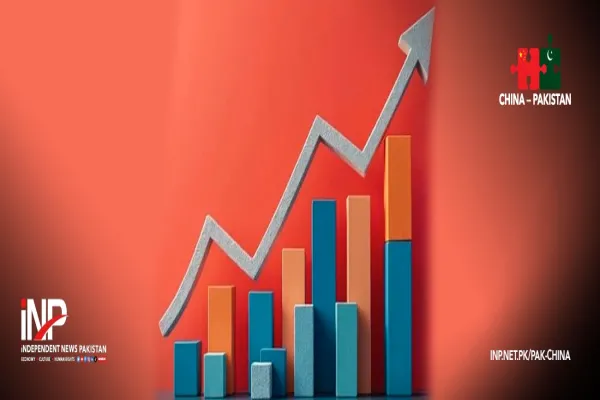i NEWS PAK-CHINA
BEIJING, Nov. 22 (INP): Farah Gul Rahuja, a girl from Dadu district of Sindh province has been recognized as a Global Youth Leader at the 2024 World Internet Conference (WIC) Wuzhen Summit being held in Wuzhen, China, from November 19 to 22. This year's summit, which drew guests from more than 130 countries and regions both online and offline, focused on artificial intelligence (AI) with the theme "Embracing a Digital Future That Puts People First and Promotes Intelligent Goodness – Jointly Building a Cyberspace Community with a Shared Future," Gwadar Pro reported on Friday. Rahuja was among the 18 youth from 17 countries and regions, including China, the United Kingdom, Brazil and Egypt, who were recognized as Global Youth Leaders at the conference.
The young leaders were selected after a rigorous evaluation process from a pool of registrants from 61 countries and regions across six continents. "I am honored and humbled to be recognized among such a talented group of young leaders from around the world," said Rahuja. "This recognition is a testament to the hard work and dedication of my team and me in the field of AI and machine learning." Rahuja, who holds a bachelor's degree in bio-informatics from COMSATS University Islamabad, has made remarkable contributions to the field of AI and machine learning. With over four years of experience in AI and machine learning projects, she co-developed PakGPT, a chatbot designed to help users access crucial information and enhance the skills of rural residents.
"PakGPT is not just another tech project; it's a platform that aims to change lives by providing localized information and opportunities in a way that is accessible to everyone, even in the most remote parts of Pakistan," emphasized Rahuja. "Pakistan faces varying levels of access to digital infrastructure. While cities enjoy high-speed internet, rural areas often struggle with slow or irregular connections, with only 2G services available in most regions. The PakGPT was designed to address this gap. It operates efficiently even on low-bandwidth connections, ensuring that anyone, regardless of location, can access the valuable knowledge they need. The chatbot is also designed to communicate in local languages, breaking down language barriers that often prevent people from accessing life-changing resources.
"In my hometown of Dadu, I worked alongside local leaders and community members to understand the unique needs of our people," added Rahuja. "PakGPT is already making a tangible difference – empowering women to make informed decisions and empowering rural youth to improve their livelihoods and take charge of their futures." During the development process, Rahuja worked with the Pakistan Information Security Association in the field of cybersecurity and actively demonstrated to rural girls how to use PakGPT to access information, skills and employment opportunities. At the Wuzhen Summit, Rahuja had the opportunity to learn from global leaders and share her experiences with fellow youth leaders. "It was inspiring to engage in discussions on how technology can drive social and economic development, enhance digital inclusion, and ensure cybersecurity in the digital age," she said.
"The 2024 World Internet Conference provided a valuable platform for me to showcase my talents and contributions to the field of AI and machine learning." As a global youth leader, Rahuja is poised to make even greater impacts in the future, harnessing technology to drive positive change in her community and beyond. "Moving forward, my vision doesn't stop with PakGPT," she shared. "Beyond this project, I am engaged with Aspire Pakistan, and we are conducting a hackathon focused on GenAI that aims to boost regional development within Pakistan's startup ecosystem and invites young people to work on real-world problems using AI."
Credit: Independent News Pakistan (INP) — Pak-China









